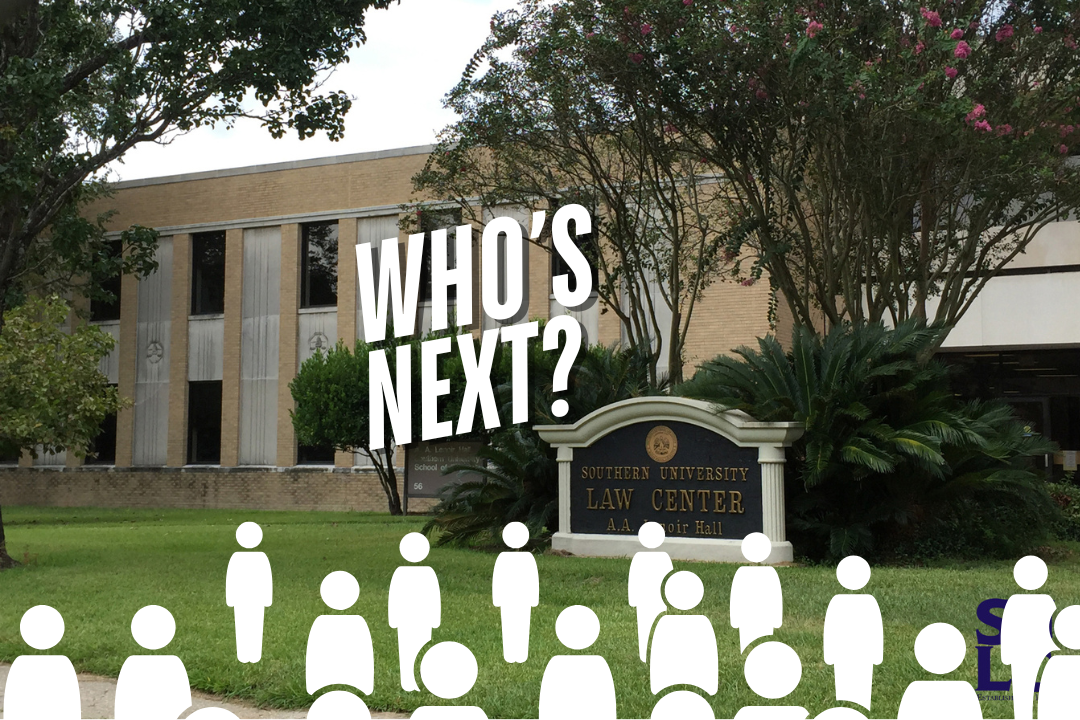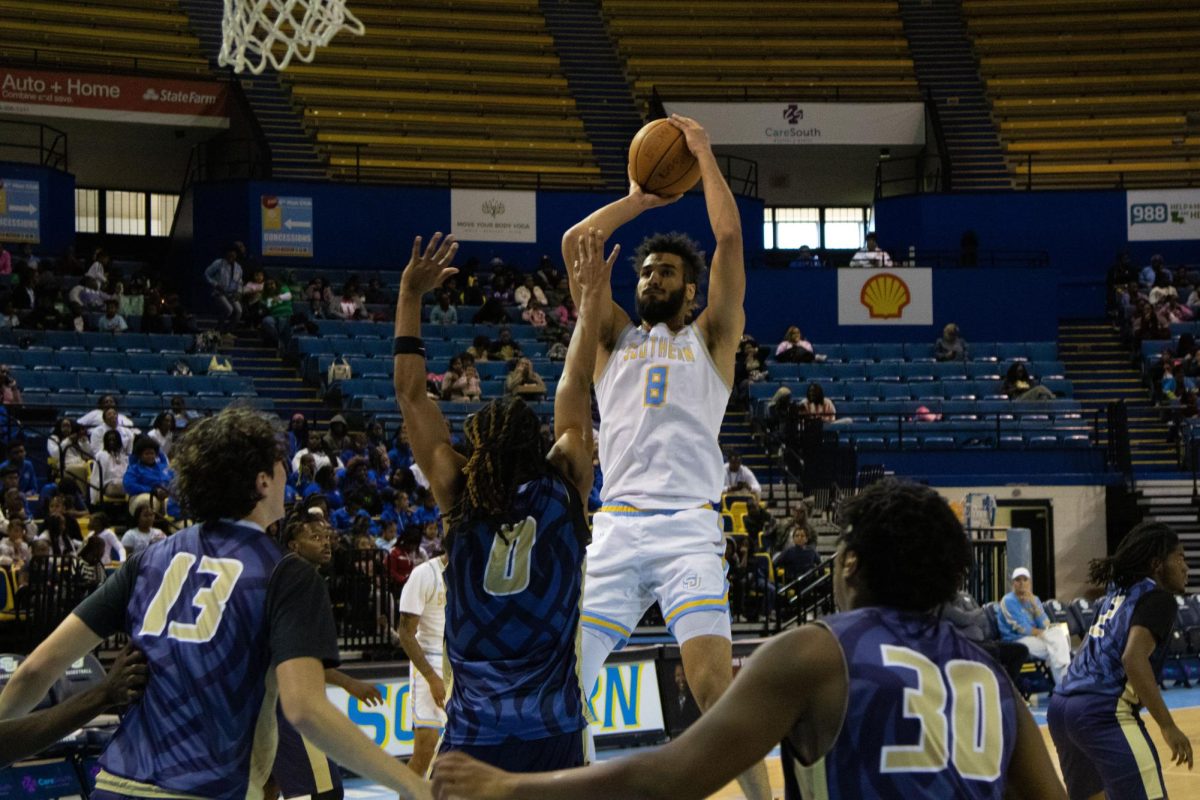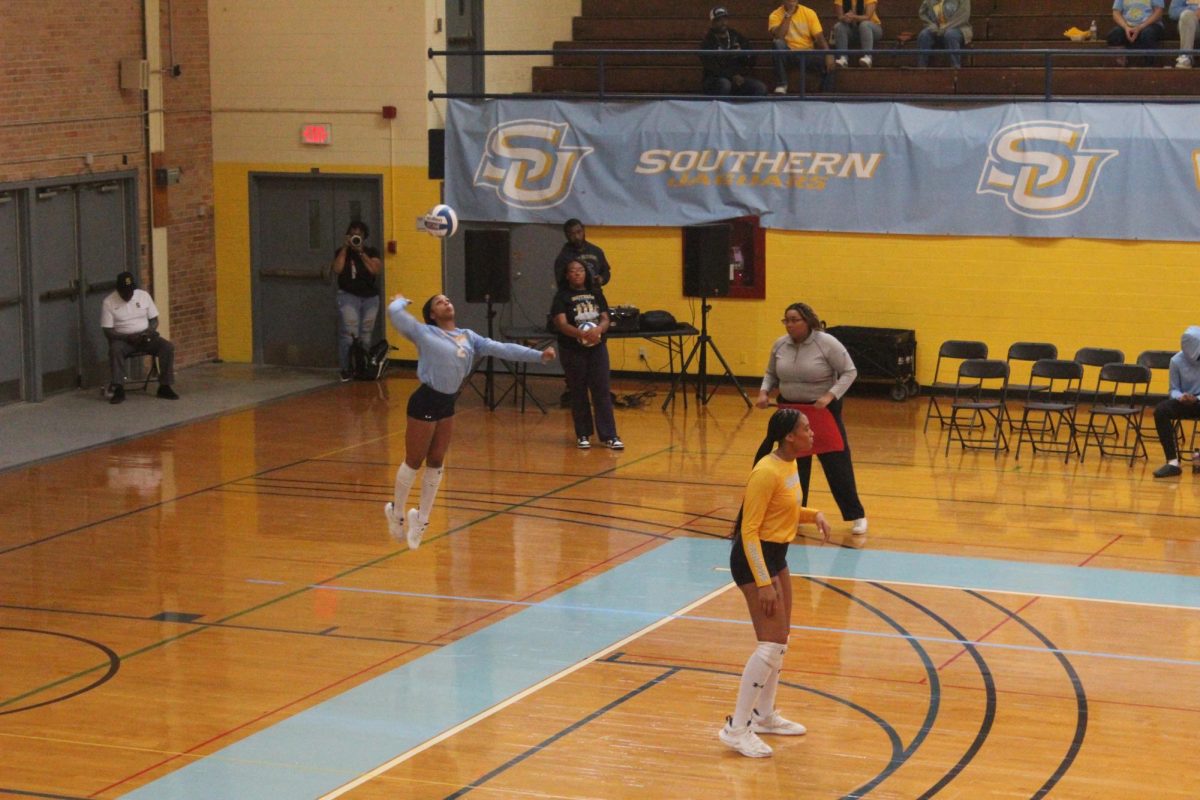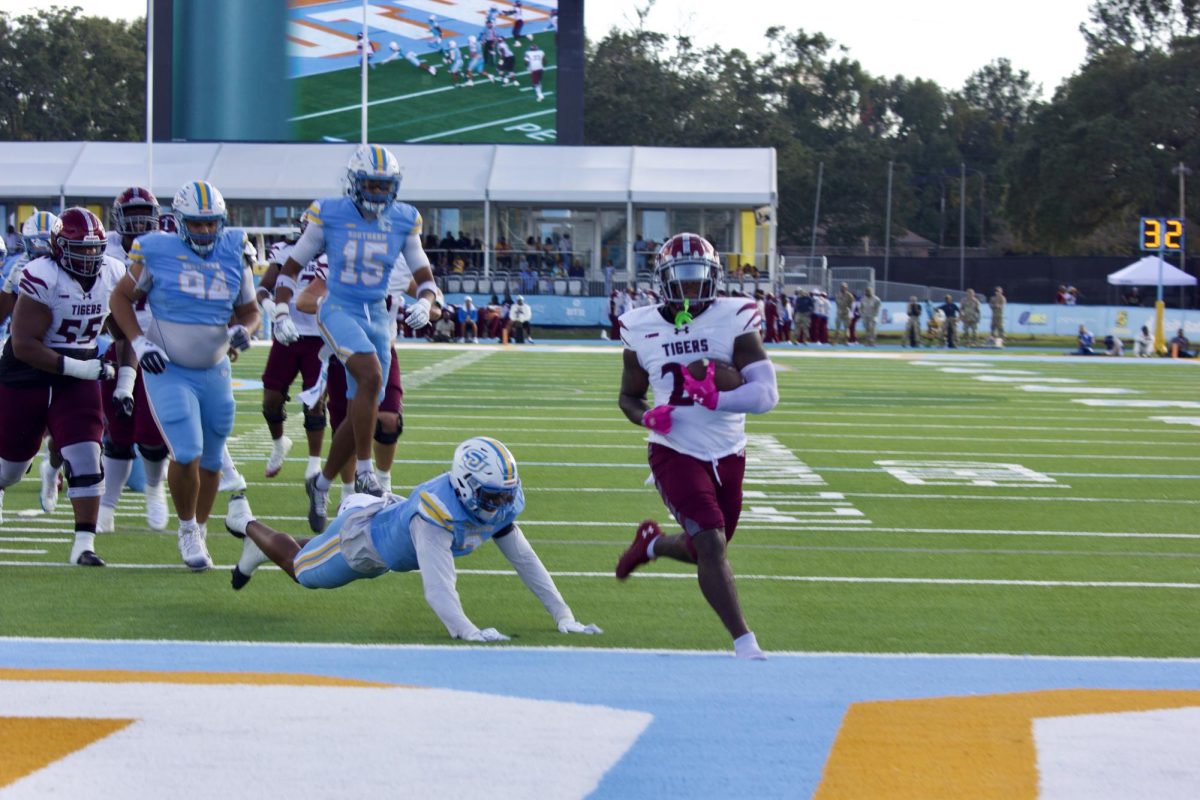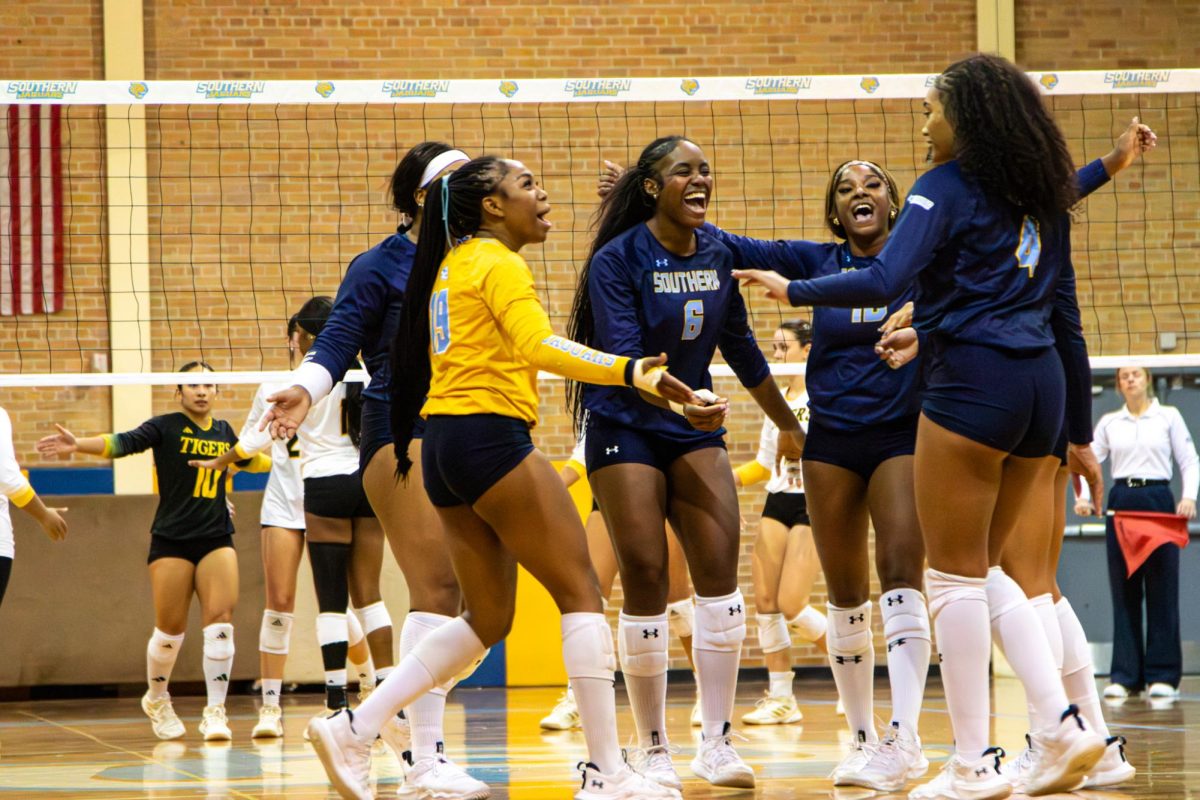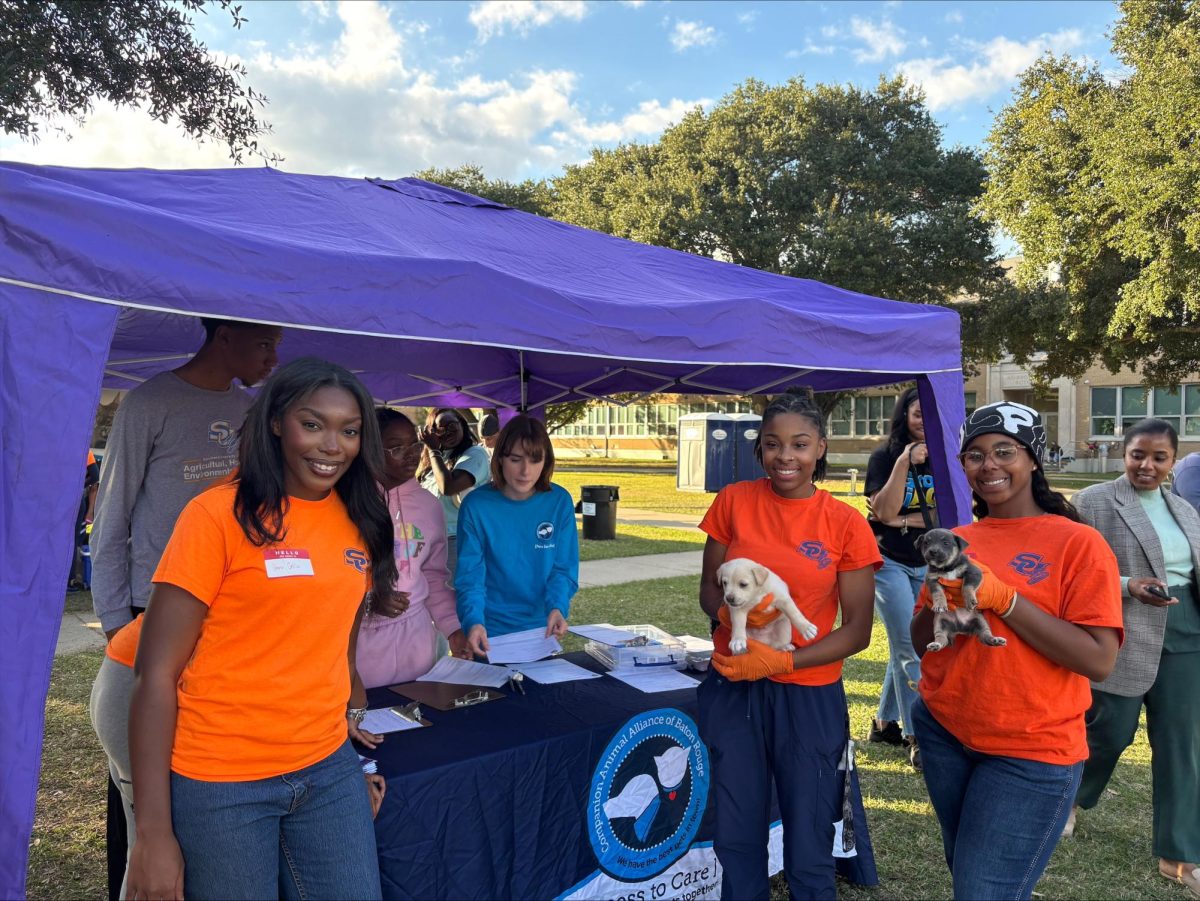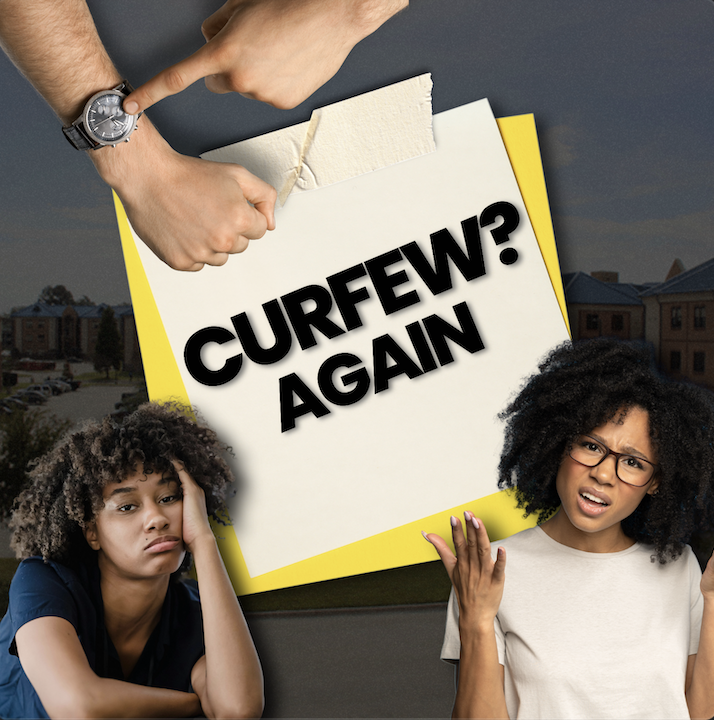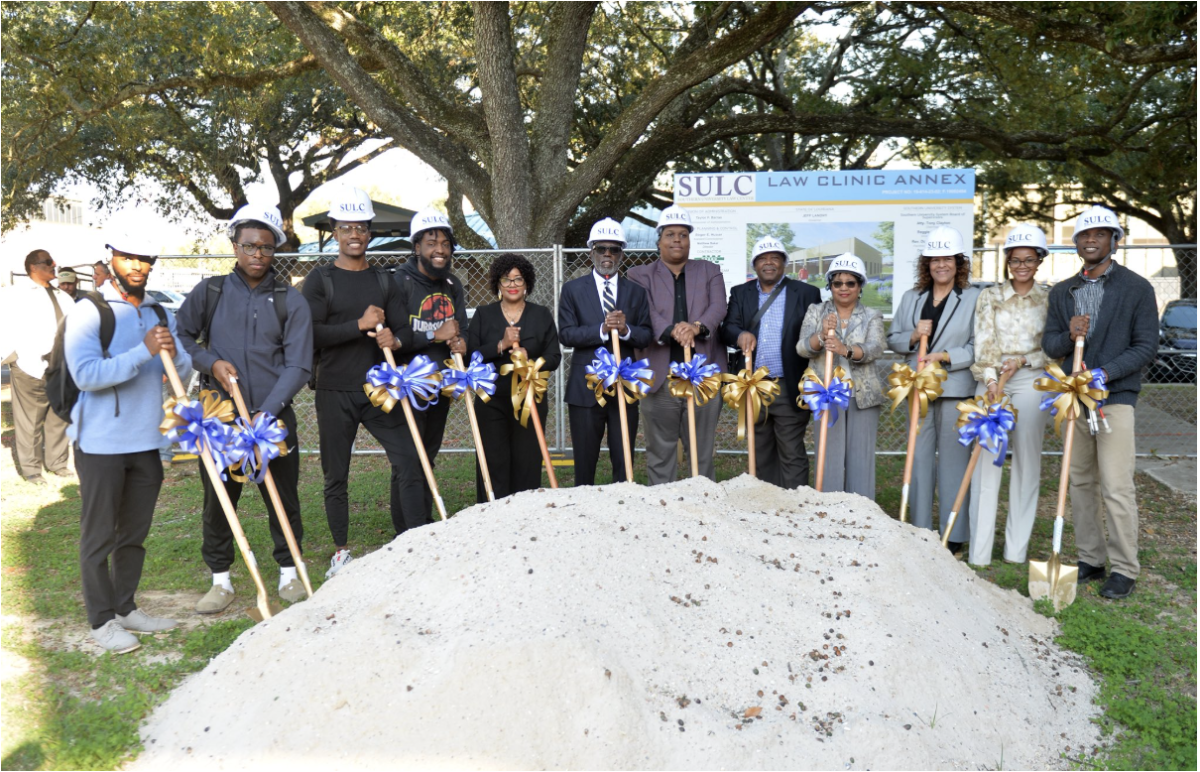Interviews for the new Southern University Law Center Chancellor culminated what has been a robust 8-month process to ensure the selection of the institution’s next rightful leader. Hosted by co-chairs of the SULC Chancellor Committee, three candidates were given the platform to advocate their aptitude for the position.
Commencing the interviews on January 28 was candidate Shawn Vance, Vice Chancellor of Academic Affairs. Having walked the campus from childhood to graduation, he associates his long standing history at Southern with his dedication to its wellbeing.
He states that SULC must reserve three core principles: structure, processes, and people.
“I believe that my experience in bar prep programming and my experience as an instructor here on both doctrinal class classes and skill courses uniquely qualify me to be the tip of the spear as we make those changes.”
Vance plans to place qualified faculty in active positions in the legal community to serve on committees at the state legislature in order to contribute to laws being proposed. Regarding the scholarship budget, Vance highlights that there is not one current student who receives a full scholarship, which has a critical effect on the applicant pool.
In amelioration, he proposes a capital campaign to create a $5 million Law Center endowment with a reasonable interest in order to aggrandize scholarships for at least an additional 60 students.
When asked how he would address the concern of distinguishing the common and civil law programs, he replied, “I want to be non-committal to the common law program. I believe the Law Center should do a full review of its curriculum based on the needs of bar passage and a legal community and so whatever that review reveals is the approach that I think we should take.”
Later that afternoon was the second session, current Interim Chancellor, Alvin Washington. An SULC alum, Washington highlights the importance of vitalizing alumni involvement. He offers the idea of class reunions with the SULC Alumni Association alongside the re-establishment of chapters in cities with large graduate populations.
ABA Standard 316 requires 75% of each graduating class to pass the bar exam within two years of graduation.
In the interest of improving bar scores, Washington describes a bar review program for which about nine Louisiana bar grads were surveyed for the most challenging elements and deficiencies were addressed with professors for early detection.
Washington proposes “team teaching”; pairing a seasoned professor with a practitioner or judge to gain teaching experience, lessening the amount of first-time professors.
Regarding mental health, Washington emphasizes the ability of taking control of your own happiness. “Happiness is a mental state; it’s a state of mind and you can control that yourself sometimes by not allowing stressors to mess up your day.”
The following morning of January 29 was the interview of final candidate Jalila Bullock.
A New Orleans native, she comes from a family committed to civil rights and a history at Southern. Her desire to contribute to life-changing work is what drew her to an impactful career, containing milestones such as being a former member of the Louisiana House of Representatives. Undergirding her vision for SULC are three main components: commitment to student success, support of rigorous legal scholarship, and dedication to fundraising.
The only external candidate, she brings with her a fresh perspective of the center and experience in facilitative positions across various institutions. “In my scholarship on criminal sentencing policing and anti-racism, I advanced strategies for eradicating the effects of racism on law enforcement and punishment approaches. As Chancellor of SULC I would continue to be a leading voice on these issues.”
As chancellor, Bullock plans to begin by taking inventory of issues and resources to become acclimated with student needs, emphasizing that a law school is only as strong as its students. “Because today’s accrediting bodies are more critical, this means that we must be more excellent.”
When Wayne State law’s bar pass rate dropped to an alarmingly low level, Bullock was asked to join a committee to address the issue. “Working with my school’s academic success and bar prep teams, we developed a data driven evidence based bar success program and it’s been hugely successful… I would give the same sort of effort, attention to data, and creativity to work with academic success and bar prep teams here at SULC.”
As we continue to navigate these turbulent times in the academic socio-political and legal landscape within higher education, it is imperative to understand processes such as these at varying levels. Look out for updates in the next issue of the Digest.
